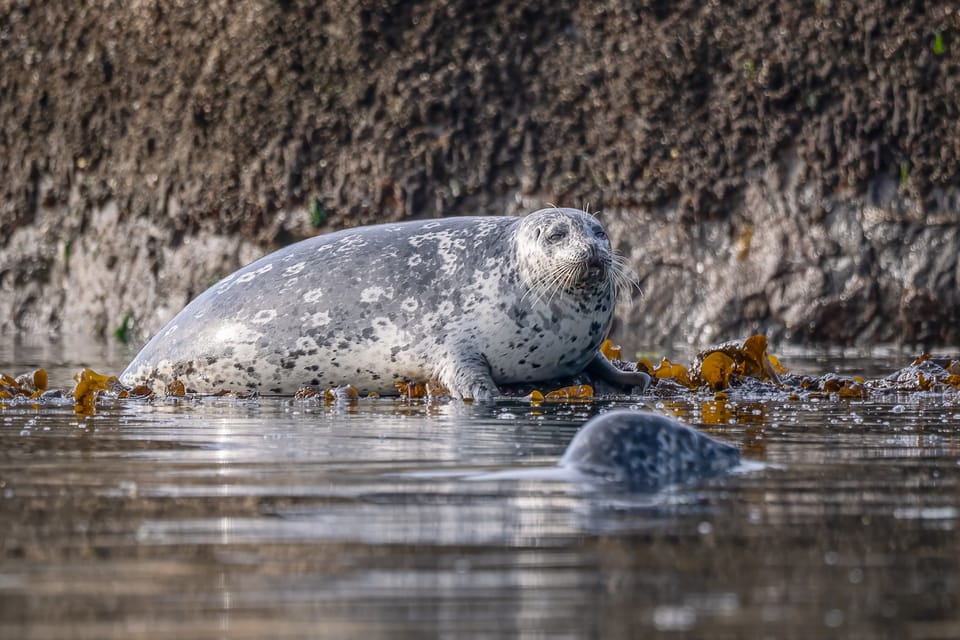EcoWest News, May 13, 2025

Welcome to EcoWest News, a weekly round-up of news and resources that you can put to use in addressing environmental issues and protecting the wild in your community.
Across the West
A partnership between Efficiency Manitoba and Raven Outcomes will deliver heat pump installations, energy efficiency upgrades, and workforce training to support Brokenhead Ojibway Nation. [Nation Talk]
Winnipeg dumps an average of 10 billion litres of sewage into its rivers every year. More frequent storms and heavy rains due to climate change make the situation worse. [Winnipeg Free Press]
Applications are now open for Alberta’s $8.7 million Wetland Replacement Program for constructing new wetlands and repairing damage to existing ones. [Lethbridge News Now]
Active forest management (clearcuts, roads, burning undergrowth, commercial thinning, post-disturbance logging) degrade natural ecosystems and could trigger large, fast-moving wildfires. [The Revelator]
Across Canada
Speeding up new economic development by cutting environmental reviews is short-sighted. Canada “must plan for resource use that is sustainable and equitable over the long term.” [The Conversation]
14 universities across Canada compiled a report outlining their campuses’ response to the climate crisis. [Climate Reality Project Canada, Google Drive report]
Around the World
Flying causes more emissions than any other form of transportation. Concerned aviation professionals say the industry must manage demand rather than promoting ever-increasing passenger numbers and emphasize innovation (new aircraft designs, new forms of power, and new airport layouts). [Mother Jones]
China is swapping EV batteries when they run low instead of recharging them. Battery swapping is primarily used for heavy-duty electric trucks at present but is also being tried with personal vehicles. [BBC]
Fungi can play a valuable role in cleaning contaminated soil on industrial sites or after a wildfire. [Smithsonian Magazine]
Peat
Researchers are attempting to reestablish peatland mosses on decommissioned oil and gas well pads. [Anthropocene]
An open-source map models the extent, depth and condition of England’s peat. Natural England believes, “Mapping peat to this level of detail will help us maximise the benefits of peat and massively advances our understanding of the role our peatlands are playing in a changing climate.” [The Guardian]
Climate Communications
“If scientists want to increase public urgency around climate change, they should highlight clear, concrete shifts instead of slow-moving trends. That could include the loss of white Christmases or outdoor summer activities canceled because of wildfire smoke.” [Gizmodo]
“The effects of our climatic and ecological crisis are all around us, but they can be very hard to see. Maybe it’s because we’ve learned to look for spectacles when we should be more alert to stealth.” [Conservation Works]
Making a Difference
Almost 103,000 people participated in iNaturalist’s City Nature Challenge, providing over 3 million observations of nearly 74,000 different species around the world. [iNaturalist]
The 2024 Shoreline Cleanup Impact Report shows a significant decrease in the items included in Canada’s single-use plastic ban (straws, cutlery, plastic bags). [Ocean Wise]
Visitors to Hawaii will be charged a .75% green fee to offset the environmental impact of tourism and to adapt to climate change. The government is also suing oil and gas companies and the American Petroleum Institute. [Heated]
Overlooked green spaces are everywhere – abandoned railway lines, old drains, vacant lots. They can support biodiversity and help people connect with nature if we: 1) leave them unmanaged, 2) support temporary/informal uses, or 3) formalize them as parks. [The Conversation]
Nature’s Wonders
Female digger wasps have remarkable memories, keeping track of nest locations and feeding their young in order of age. [Science Daily]
Take a look at the incredible diversity and ingenuity of sea cucumbers, the “vacuum cleaners of the sea”. [Smithsonian Magazine]
Photo credit: https://www.flickr.com/photos/apmckinlay/54504566021/
EcoFriendly West informs and encourages initiatives that support Western Canada’s natural environment through its online publication and the Nature Companion website/app. Like us on Facebook, follow us on BlueSky, X, and Mastodon, or subscribe by email.

Member discussion